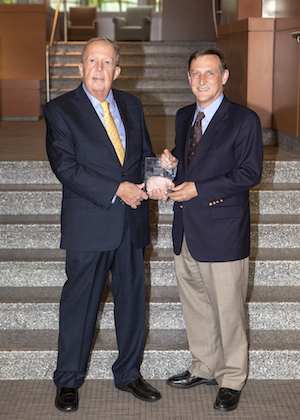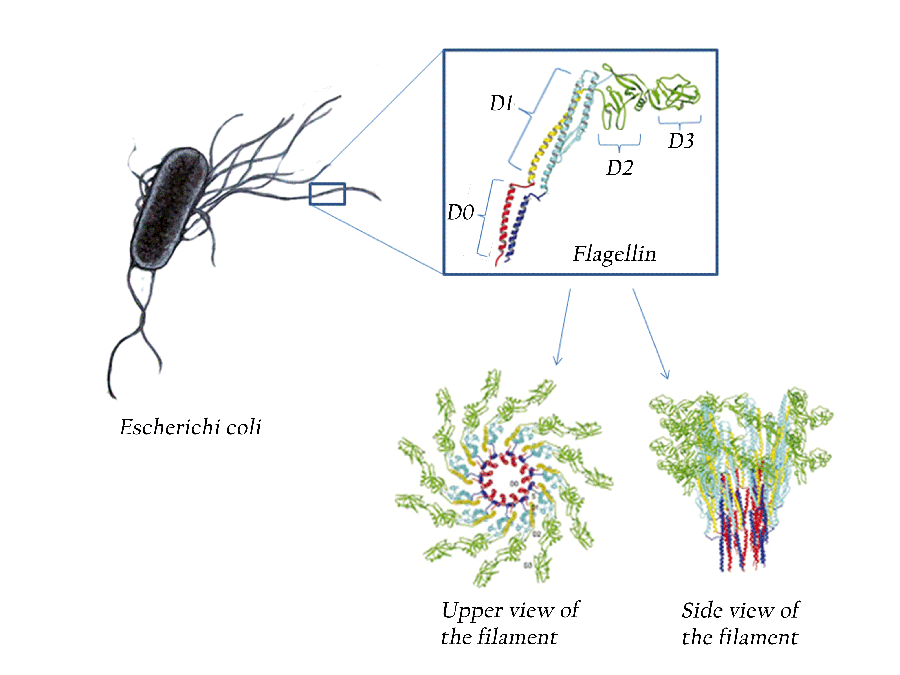Congratulations to Richard Compans, PhD, who delivered the Dean’s Distinguished Faculty Lecture on May 12, joining a select group of Emory researchers who have received this award. After Dean Chris Larsen presented the award, Compans also received a Catalyst award from the Georgia Research Alliance, presented by GRA President and CEO Mike Cassidy.
At Emory, Compans has led research on ways to improve influenza vaccination, such as vaccines based on non-infectious virus-like particles and microneedle patches for delivery (now being tested clinically). The 2009 H1N1 flu epidemic, as well as concern about pandemic avian flu, have meant that Compans’ work has received considerable attention in the last several years. In his talk, he also discussed his early work on the structure of influenza virus, the virus’s complex ecology, and the limitations of current flu vaccines.
Compans was recruited to Emory from UAB in 1992 and was chair of Emory’s microbiology and immunology department for more than a decade. He was also instrumental in recruiting Rafi Ahmed to establish and lead the Emory Vaccine Center. He is now co-principal investigator of the Emory-UGA Center of Excellence for Influenza Research and Surveillance.
Some recent papers that illustrate the extent of Compans’ influence: Read more







